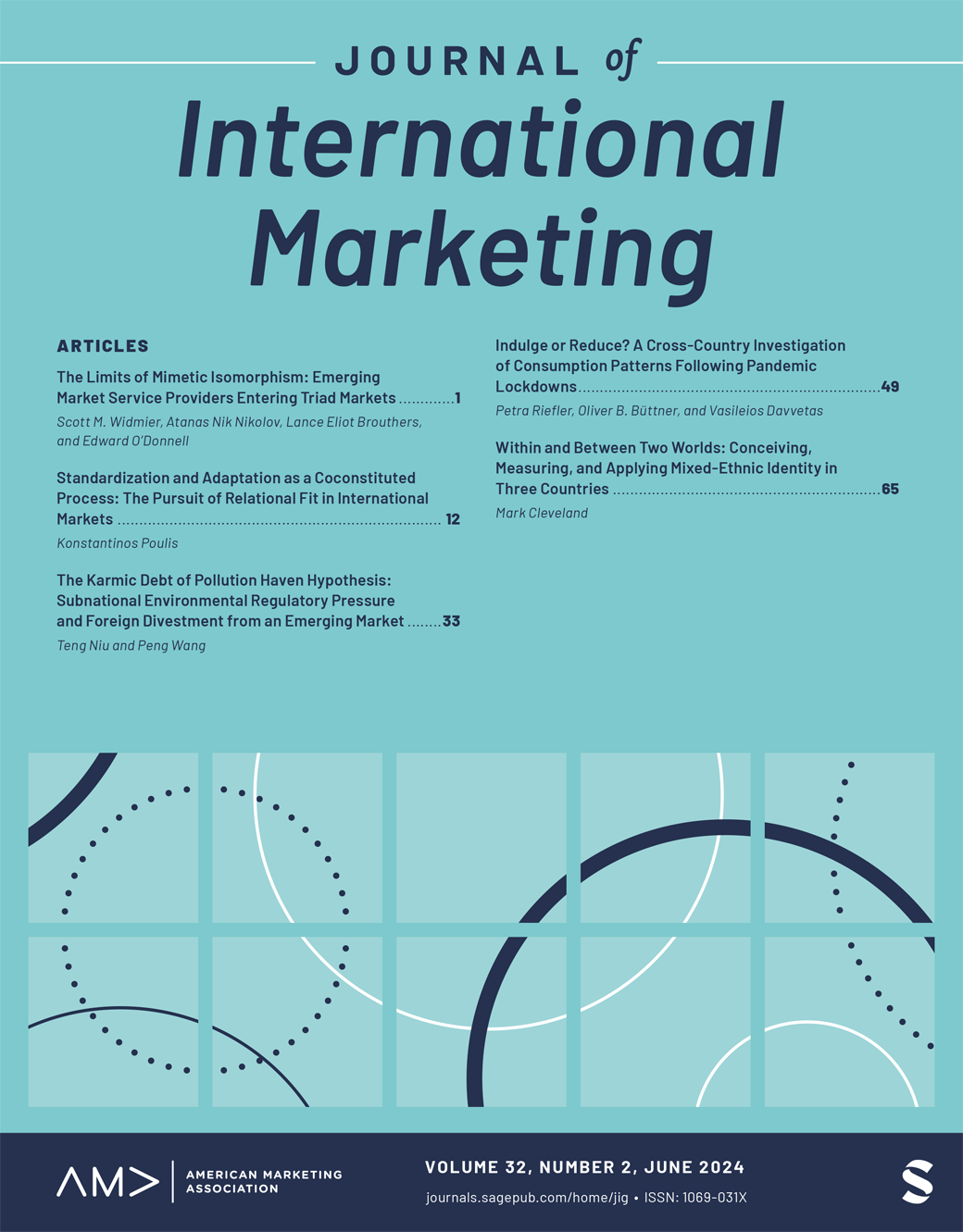EXPRESS: When “Global” Becomes a Challenge: The Role of Freshness in Food Brand Preference Formation
IF 4.2
2区 管理学
Q1 BUSINESS
引用次数: 0
Abstract
This research provides evidence that globally positioned food brands face an inherent trade-off – the advantages of wide global availability and global sourcing can be outweighed by unfavorable perceptions related to freshness. Through five experiments, with participants from developed and emerging markets, the authors demonstrate that global (vs. local) brand positioning cues dampen product purchase intentions; this happens because globally (vs. locally) positioned brands evoke lower freshness perceptions. This effect is particularly pronounced for minimally or moderately (vs. highly) processed product categories, for which freshness considerations are more important. In addition, the negative effects of globally positioned brands can be reduced with secondary freshness cues, such as freshness seals or guarantees, and that such a strategy is particularly effective for individuals high in perceived vulnerability to disease.EXPRESS:当“全球化”成为挑战:新鲜度在食品品牌偏好形成中的作用
这项研究提供的证据表明,全球定位的食品品牌面临着一种内在的权衡——广泛的全球可用性和全球采购的优势可能会被与新鲜度相关的不利看法所抵消。通过五个实验,参与者分别来自发达市场和新兴市场,作者证明了全球(相对于本地)品牌定位线索会抑制产品购买意愿;这是因为全球(相对于本地)定位的品牌唤起的新鲜度较低。这种影响在最低限度或中度(相对于高度)加工的产品类别中尤其明显,因为新鲜度的考虑更重要。此外,全球定位品牌的负面影响可以通过二级新鲜度线索来减少,例如新鲜度密封或保证,这种策略对易患疾病的个人特别有效。
本文章由计算机程序翻译,如有差异,请以英文原文为准。
求助全文
约1分钟内获得全文
求助全文
来源期刊

Journal of International Marketing
BUSINESS-
CiteScore
8.70
自引率
17.20%
发文量
28
期刊介绍:
As the globalization of markets continues at a rapid pace, business practitioners and educators alike face the challenge of staying current with the developments. Marketing managers require a source of new information and insights on international business events. International marketing educators require a forum for disseminating their thoughts and research findings. Journal of International Marketing(JIM) is an international, peer-reviewed journal dedicated to advancing international marketing practice, research, and theory. Contributions addressing any aspect of international marketing management are published each quarter.
 求助内容:
求助内容: 应助结果提醒方式:
应助结果提醒方式:


